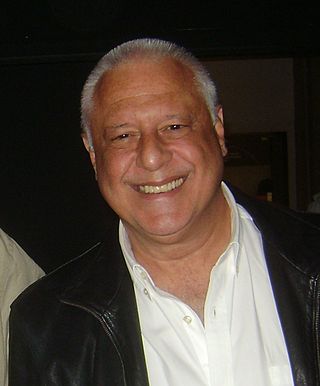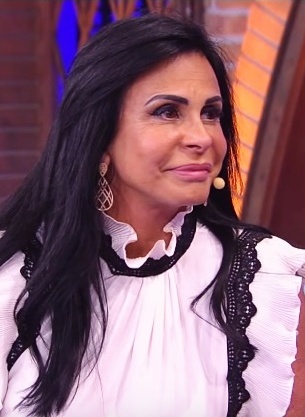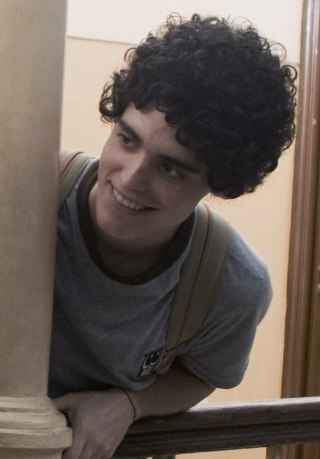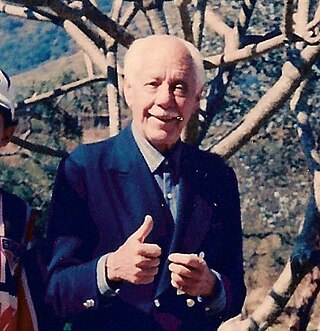
Puxada de rede (lit. "fishing net pulling") is a Brazilian folkloric theatrical play, seen in many capoeira performances. It is based on a traditional Brazilian legend.

Puxada de rede (lit. "fishing net pulling") is a Brazilian folkloric theatrical play, seen in many capoeira performances. It is based on a traditional Brazilian legend.
A fisherman goes out to fish at night on a jangada, a handmade seaworthy sailing raft used by fishermen of north-eastern Brazil. His wife has a presentiment of something wrong and tries to stop him from going fishing that night. He goes anyway, leaving his wife crying and his kids scared. His wife waits the whole night for him on the beach, and around 5:00am, the usual arrival time, she sees the jangada. The fishermen have a very sad expression and some are even crying, but she does not see her husband. The fishermen tell her that her husband has fallen off the jangada by accident. As they start to withdraw the net, they find his body amongst the fish. His friends carry his body on their arms, in a traditional funeral ritual on the beach. The fishermen composed a dance in his memory and called it "puxada de rede". it has two rhythms.
English translation in italics where available.
NO MAR
No mar, no mar, no mar, no mar eu ouvi cantar
In the sea, in the sea, in the sea, in the sea I heard singing
No mar, no mar, no mar minha sereia, ela é sereia
In the sea, in the sea, in the sea my mermaid, she is a mermaid
MINHA JANGADA VAI SAIR P'RO MAR
Minha jangada vai sair p'ro mar
My jangada is going out to sea
Vou trabalhar, meu bem querer
I'm going to work, my love.
Se Deus quiser quando eu voltar do mar
If God wants when I return from the sea
Um peixe bom, eu vou trazer
A good fish, I will bring
Meus companheiros tambem vão voltar
My friends will also return
E a Deus do céu vamos agradecer
and to God we will give thanks
A REDE PUXA
A puxa a marra marinheiro
A rede puxa
A puxa lá que eu puxo cá
A rede puxa
A puxa a marra samangolê
A rede puxa
PUXA A MARRA MARINHEIRO
Puxa a marra marinheiro puxa a marra
E olha o vento que te leva pela a barra

Roberto Carlos Braga is a Brazilian singer-songwriter, also known as "King of Latin Music" or simply "the King". Most of his songs were written in partnership with his friend, singer and songwriter Erasmo Carlos. Roberto Carlos has sold over 70 million albums around the world. He is considered one of the most influential artists in Brazil, being cited as a source of inspiration by many artists and bands. His net worth is estimated at US$160 million.

Marta Teresa Smith de Vasconcellos Suplicy is a Brazilian politician and psychologist. She was Mayor of São Paulo from 2001 to 2004. She later served as the Brazilian Minister of Tourism between 14 March 2007, and 4 June 2008, when she resigned to run again for the mayoralty of São Paulo. In 2015, she left the Brazilian Workers' Party (PT), but she returned to the party in January 2024 in order to be the running mate of Guilherme Boulos in the 2024 São Paulo mayoral election.

Antônio José da Silva Fagundes Filho is a Brazilian actor, playwright, voice actor, and producer. Renowned for his several performances in stage, film and television, where he frequently works in telenovelas.

Maria Odete Brito de Miranda de Souza, known professionally as Gretchen, is a Brazilian singer and media personality. Often referred to as the "Meme Queen", Gretchen is the older sister of Brazilian country singer Sula Miranda, and mother of Brazilian politician Thammy Miranda. She is known for reinventing her music and image, and for keeping her autonomy within the music industry. She has a vast musical repertory, and has been the source of some controversy throughout her career. Referred to as the "Rainha do Bumbum", Gretchen has sold 15 million records over nearly four decades.

Grande Otelo was the stage name of Brazilian actor, comedian, singer, and composer Sebastião Bernardes de Souza Prata. Otelo was born in Uberlândia, and was orphaned as a child. He kept running away from the families that adopted him; only when he took up art did his life become settled.

The União dos Escoteiros do Brasil is the national Scouting organization of Brazil. Scouting in Brazil was founded in 1910 and was among the charter members of the World Organization of the Scout Movement in 1922. The União dos Escoteiros do Brasil itself was founded in 1924; it has 62,990 members as of 2021. The association is a member of the Comunidade do Escutismo Lusófono.

Marieta Severo da Costa is a Brazilian stage, film and television actress. She is best known to youth audiences as the archetypal mother figure in popular sitcom A Grande Família (2001–2014), as well to mature audiences for portraying villains in telenovelas.

Nora Ney was a Brazilian singer. She is also the most notable singer of the samba-canção music style and a pioneer of the Brazilian rock.

Banda Calypso was a Brazilian brega pop band, with influences of regional rhythms of the state of Pará. The band was formed in Belém, the state capital, in 1999 by singer/dancer Joelma da Silva Mendes and guitarist/producer Cledivan Almeida Farias, better known as Mestre Ximbinha. Early exposure of their work was restricted to only the North and Northeast regions of Brazil. The band now enjoys success throughout Brazil and has begun to establish its career abroad with tours to the United States, Europe and Angola.
Tonico e Tinoco were a Brazilian música sertaneja duo from the state of São Paulo, composed of brothers Tonico and Tinoco, they are regarded among the most famous and prolific artists in sertanejo. With their first hit single, "Chico Mineiro" (1946), they were named "A Dupla Coração do Brasil". They performed more than 40,000 times between 1935 and 1994, recorded more than 1,000 songs and sold over 150 million albums despite never performing outside of Brazil.

TV Verdes Mares is a television station licensed to Fortaleza, Ceará, Brazil, affiliated with TV Globo. Owned by Sistema Verdes Mares, subsidiary of Grupo Edson Queiroz, it is part of a duopoly with Fortaleza-licensed independent station TV Diário. TV Verdes Mares's studios and transmitter are located on Desembargador Moreira Avenue, in the Dionísio Torres district, on Fortaleza.
The 2006 MTV Video Music Brazil was hosted by Cazé Peçanha, Marcos Mion and Daniela Cicarelli and took place at the Credicard Hall. It was the last year where VMB focused on awarding music videos ; from 2007 on, VMB's categories were redefined to focus on the artists.
The 2005 MTV Video Music Brazil was hosted by Selton Mello and took place at the Credicard Hall. It was the only edition of the awards where the presenters of the main categories performed a song or a medley of songs related to the category presented before introducing the nominees and announcing the winners. In 2005, the Viewer's Choice and Video of the Year categories were combined into a single category; before 2005, the Video of the Year award was chosen by a jury of experts, while most of the categories were decided by the viewers.

Agostinho dos Santos was a Brazilian singer and composer of bossa nova, MPB and rock and roll, active from the early 1950s until his premature death in the crash of Varig Flight 820 in 1973, at the age of 41.

Phabullo Rodrigues da Silva, known professionally as Pabllo Vittar, is a Brazilian drag queen and singer.

Fábio Audi is a Brazilian actor and producer.

Paulo Gustavo Amaral Monteiro de Barros, commonly known as Paulo Gustavo, was a Brazilian actor, comedian, director, screenwriter, and presenter.

Sílvio Antônio Narciso de Figueiredo Caldas was a Brazilian singer and composer.